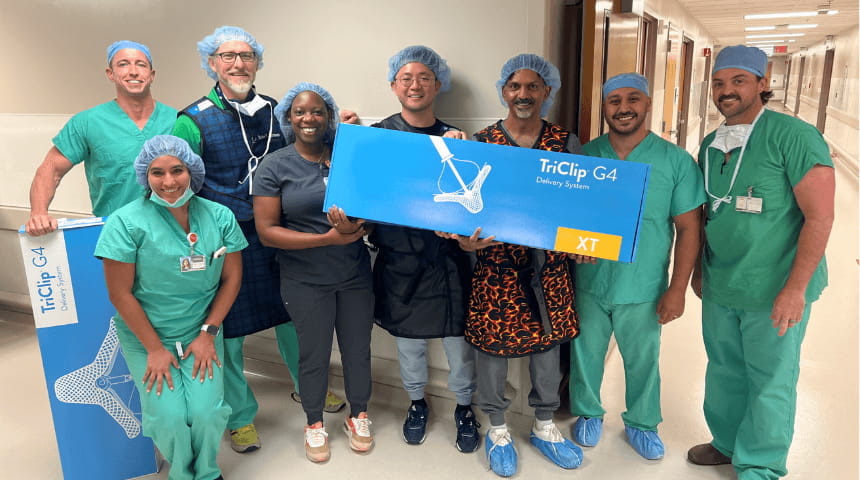New Protocol Streamlines Diagnosis and Treatment of Rare Celiac Artery Compression Syndrome
Surgical specialists at Orlando Health are using advanced diagnostic tools, a comprehensive multidisciplinary approach and minimally invasive robotic surgery to seek out and rapidly address celiac artery compression syndrome, a rare vascular condition that often goes undiagnosed for years.

Celiac artery compression syndrome, also known as median arcuate ligament (MALS) or Dunbar syndrome, occurs when the diaphragm’s fibrous median arcuate ligament compresses the celiac artery, resulting in recurrent postprandial abdominal pain, nausea and weight loss. Historically, diagnosis has been difficult, often based on exclusion due to the condition’s nonspecific symptoms, lack of commonality in risk factors and unknown origin. Patients often become frustrated when extensive workups for more common sources of abdominal pain are negative, offering no relief.
The surgical team at Orlando Health has developed a protocol for solidifying MALS diagnosis and treatment by working collaboratively with radiology, pain management and interventional radiology colleagues.
“This multidisciplinary diagnostic relationship, combined with newer, more detailed imaging studies and prognostic indicators has streamlined and revolutionized our approach to disease confirmation,” says Joseph Ibrahim, MD, director of surgery with Orlando Health Medical Group. A published researcher and surgeon, Dr. Ibrahim is double board certified in general surgery and surgical critical care.
Once MALS is diagnosed, Orlando Health’s general and vascular surgical specialists utilize advanced surgical techniques to better decompress the celiac axis. Minimally invasive robotic surgery enables them to more easily dissect the fibrous median arcuate ligament band from the musculature overlying the celiac trunk.
“This increases the vessel’s blood flow while also releasing compression on the celiac plexus nerve fibers to significantly relieve pain,” says Dr. Ibrahim, whose patients typically go home the day following surgery.
Orlando Health’s team has treated almost a dozen MALS patients in the past two years. “It's a very gratifying surgery that patients tell us gives them back their life,” says Dr. Ibrahim. “If our primary care peers have patients complaining of chronic epigastric pain, loss of appetite or nausea, we encourage them to evaluate for MALS immediately and are happy to help.”
Orlando Health is dedicated to revolutionizing patient care with outcomes advanced by specialists skilled in the most leading-edge technologies and involved in advanced clinical research and training. Orlando Health Medical Group Surgery offers comprehensive services by board-certified specialists accomplished in both minimally invasive and traditional surgical procedures.





